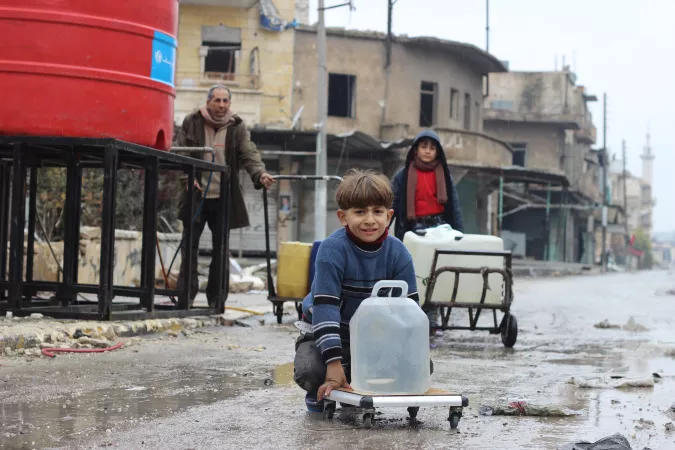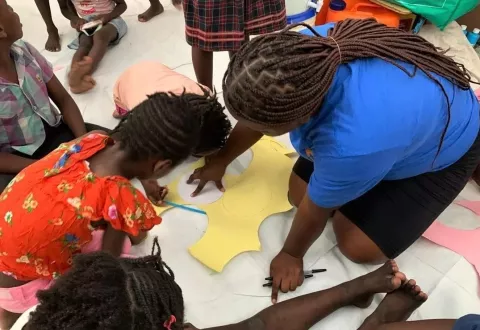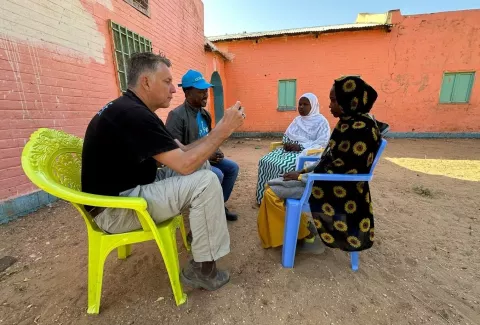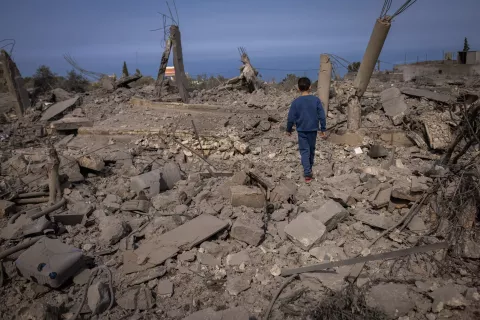Update on the situation of children in northeast Syria
- Available in:
- English
- العربية
AMMAN/GENEVA/NEW YORK, 11 October 2019 - As violence escalates in northeast Syria, many children are at imminent risk of injury, death and displacement. UNICEF urges all parties to protect children and civilian infrastructure on which they depend, in accordance with international human rights and humanitarian law.
As the situation continues to evolve, exact figures of people’s displacement are not yet available. Tens of thousands of people, among them many children, have been displaced since violence escalated, mainly from the areas of Ras al-Ain and Tal Abiad.
Some of the people displaced are reportedly heading towards Ar-Raqqa city (90km south of Tal Abiad) while the majority are heading towards other locations including Amouda, Al Derbasiya, Tal Tamer and Hassakeh city (around 75km southeast of Ras al-Ain.) Internally Displaced Persons in Hassakeh city are mostly being hosted by the local community in addition to collective shelters in schools and buildings under construction.
In Ras al-Ain, the Alouk water pumping station reportedly came under attack early yesterday morning (10 October). This station provides safe water to at least 400,000 people in Hassakeh governorate, including displacement camps. Technical and operational staff have not been able to get to the water station to repair it due to ongoing hostilities.
In Tal Abiad, two schools have reportedly been taken over for military use. UNICEF reminds all parties that children and all civilian infrastructure on which they depend, including schools, must be protected at all times in line with international human rights law and international humanitarian law.
UNICEF’s partners in Tal Abiad and Ras al-Ain have had to stop most of their work in the area. Many of their staff and volunteers are among the displaced population. Child Protection programmes have been suspended in Ras al-Ain, Mabrouka camp, Tal Halaf, Sulok and Tal Abiad. Health and Nutrition response in Ras al-Ain and Mabourka camp have also been suspended. Schools in these areas have been closed and water supply has been impacted.
UNICEF continues to maintain a presence in Qamishli through its staff, facilitators and partners and has stocked up WASH, Health and Nutrition supplies covering the needs for 45,000 children and women for one month in addition to seasonal clothes for children under the age of five, with additional supplies in the pipeline.
An escalation of hostilities in the area is likely to have serious consequences on the ability of humanitarian actors to provide protection and assistance to thousands of vulnerable children.
UNICEF reiterates that the only solution to the brutal conflict in Syria is a political solution. The protection of children in the northeast of Syria and across the country must be prioritized at all times.
#####




